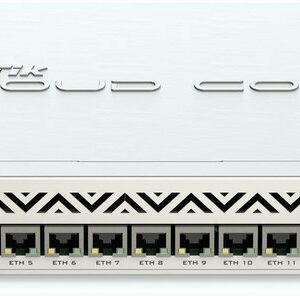What Is MikroTik Used For?
MikroTik Dubai is a Latvian company that specializes in developing and manufacturing networking equipment and software. Their products, often referred to as MikroTik routers or MikroTik devices, offer a wide range of features and capabilities that make them suitable for various networking applications. In this article, we will explore what MikroTik is used for and the key applications where MikroTik devices excel.
Wireless Internet Service Providers (WISPs):
MikroTik routers are widely used by Wireless Internet Service Providers (WISPs) to deliver internet connectivity to customers. MikroTik devices offer advanced wireless capabilities, including support for various wireless protocols, such as 802.11ac and 802.11n, and the ability to create multiple virtual access points. This makes them ideal for building wireless networks that cover large areas, such as rural or urban environments.
Network infrastructure and management:
MikroTik devices are commonly used to build and manage network infrastructure. They can serve as routers, switches, firewalls, and access points, providing a comprehensive networking solution. MikroTik’s RouterOS operating system, which powers their devices, offers extensive networking features, including routing protocols, VLAN support, Quality of Service (QoS) management, and VPN capabilities. This versatility makes MikroTik devices suitable for small to large-scale network deployments.
Network security and firewalling:
MikroTik devices are known for their robust security features, making them popular choices for network security implementations. MikroTik routers offer advanced firewall capabilities, such as packet filtering, stateful inspection, and intrusion detection and prevention. They also support virtual private network (VPN) tunnels, ensuring secure communication over public networks. With the MikroTik RouterOS firewall, administrators can implement granular security policies to protect their networks from unauthorized access and threats.
Hotspot and captive portal solutions:
MikroTik devices are frequently utilized to provide hotspot and captive portal services. Hotspots are commonly found in public places like cafes, hotels, and airports, where users can connect to the internet through a wireless network. MikroTik routers can be configured to act as hotspot gateways, offering user authentication, billing, and bandwidth management functionalities. This enables businesses and service providers to offer controlled and monetized Internet access to their customers.
Network monitoring and management:
MikroTik devices come with built-in tools for network monitoring and management. The RouterOS operating system offers features like bandwidth monitoring, traffic analysis, and network resource utilization reports. Additionally, MikroTik provides powerful network management software called “The Dude,” which allows administrators to monitor and manage their networks through a graphical interface. These tools facilitate efficient network administration and troubleshooting.



